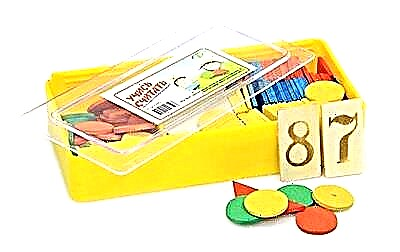
How the child reacts to each new complementary food product is influenced by the age of the baby and the characteristics of the product itself. Sometimes the introduction of complementary foods helps to cope with constipation in bottle-fed babies, but a fairly common problem is the development of constipation, as a reaction to complementary foods.
Signs
When a child begins to receive complementary foods (porridge, fruit purees, vegetable dishes), his feces become denser and more shaped. In toddlers under three years of age, the normal frequency of stool after complementary foods is to empty five to six times a week. If the child poops less often and it causes him discomfort, then we can talk about constipation.

Possible reasons
The reasons for the harder stool consistency after the introduction of complementary foods are:
- Diet changes. Even in adults moving to another area, when the usual menu changes, problems with stool are possible. Therefore, for the crumbs, whose body previously had to digest only milk, complementary foods are a serious change that affects digestion.
- The introduction of complementary foods ahead of schedule. The sooner the baby gets an unusual dish, the more difficult it will be for his digestive tract to digest the new product.
- Starting feeding with dairy products. It is such food, especially introduced into the baby's diet ahead of time, that provokes constipation.
- Early introduction of protein supplementary foods. The baby's digestive tract cannot cope with rather heavy protein foods at an early age and reacts with constipation.
- Lack of fluid in the diet of the crumbs. When the baby is given complementary foods, the baby should also begin to supplement. If for a baby receiving breast milk, this is not so important (the baby can get liquid from mother's milk), then for an artificial child, a lack of fluid can cause constipation.
- Food allergy. It can manifest itself in various disorders of the digestive function, including constipation.
- Non-compliance with the diet. It is recommended to give the baby complementary foods at a set time, then his digestive tract will better cope with the digestion of food.
- Long stay of the child in bed and lack of movement.
- Use of certain medications - sorbents, iron preparations, calcium salts and others.
- Psychological suppression of the urge to poop due to stress or pain with cracks in the anus.

How to help?
Parents of crumbs who have constipation during the introduction of complementary foods are recommended:
- If the product was introduced to a baby less than 6 months old, the complementary feeding should be completely canceled and wait.
- If dairy products provoked constipation, then they should be excluded from the infant's diet, and if the stool has improved, try to enter at a later age. If, after 6 months, the child continues to develop constipation after consuming dairy products, they should be ruled out before one year of age.
- If the cause of constipation was not dairy products introduced into the diet of crumbs older than 6 months, complementary foods are temporarily canceled and then introduced very slowly, starting with minimal amounts. One product should be introduced into the child's diet, and at the same time monitor the baby's stool.
- To alleviate the condition of the baby with constipation, it is recommended to give mashed potatoes and juices from apples, peaches, prunes, apricots. This fruit contains a lot of dietary fiber, which helps to retain water in the stool for a softer consistency.
- If the baby eats porridge, then foods that are low in fiber (rice, semolina) are best replaced with cereals in which there is more dietary fiber (oatmeal, buckwheat).
- Massage the baby's belly, and also do this exercise - pull the crumbs bent at the knees to his tummy.

Do you need an enema?
Enema is a very radical method, recommended when no other actions have helped. So first you should try to cope with constipation in other ways - normalizing nutrition, changing the drinking regimen, and massage the tummy.
An alternative to an enema can also be the introduction of suppositories to help the baby empty, but their use should be rare. It is recommended to talk to your pediatrician about the use of such suppositories. You should never give a baby laxatives without a doctor's prescription.
When is a doctor's consultation necessary?
- If you introduce complementary foods into the child's diet correctly, and the baby still reacts to them with hard feces, be sure to go with the baby to the pediatrician in order to exclude diseases manifested by constipation.
- You should also go with a baby to a specialist for prolonged (longer than 4 days) and often recurring constipation.
- Also, be sure to talk to your doctor if constipation occurs suddenly and in cases where this problem is accompanied by fever and pain.

Prevention
- You should not rush to increase the portion of complementary foods.
- You should begin to introduce products in the form of one-component dishes.
- Provide your child with optimal drinking regime.
- Stick to a diet, giving your baby one type of complementary foods in the morning and another at other times of the day.
- You should avoid constipation-provoking foods in large quantities - bananas, rice, carrots, dairy products.
- Encourage the baby to move more - crawl, walk, run.



